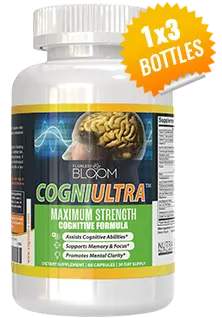The good news is that maintaining your brain health in the 60s and beyond isn’t just possible — it’s absolutely achievable! Think of your brain as a powerful muscle that loves attention and care. The sooner you start giving it the support it craves, the more effectively you can reduce aging and cognitive decline.
Picture your brain health like tending a beautiful garden, where good nutrition feeds your mind’s soil. Regular mental exercises and physical movement act like sunshine and fresh air for your cognitive abilities. Starting these healthy habits like brain exercises for the elderly now plants the seeds for strong memory, sharp focus, and brilliant problem-solving skills.
Ready to discover some amazing ways to keep your mind sparkling bright? Let’s explore some game-changing strategies together!
Effects of Aging on Brain Function
Your brain undergoes several natural changes as you grow older, but knowledge empowers you. Understanding these shifts helps you take charge of your cognitive wellness with confidence.
- Slower Cognitive Processing & Memory Recall: Those moments when names slip away or objects seem to vanish? They’re completely normal! Your brain simply takes extra time to access information now.
- Decreased Neurotransmitter Activity: Picture your brain’s messaging system becoming more selective with age. While chemical signals may slow down, you can support them through targeted healthy habits.
- Brain Shrinkage and Reduced Blood Flow: Your brain naturally becomes more efficient with age, like a garden that needs careful tending. Though physical changes occur, your mind maintains incredible potential for growth.
These changes don’t mean that cognitive decline is inevitable—there are ways to support a sharp mind at every stage of life.
Common Signs of Cognitive Decline
Understanding the difference between normal changes and concerning shifts empowers you to take control. Let’s explore these signs with a spirit of awareness rather than worry.
- Mild Forgetfulness vs. Memory Loss: Missing your keys occasionally shows you’re human! However, repeatedly forgetting important conversations might signal a need for professional guidance.
- Trouble Concentrating or Multitasking: If focusing on tasks or juggling multiple things feels harder than it used to, it could be an early sign of aging and cognitive decline.
- Slower Problem-Solving: When solutions take longer to surface, your brain might be asking for extra support. Think of this as an opportunity to strengthen your cognitive tools.
Paying attention to these signs can help you or your loved ones take proactive steps toward better cognitive health.
Strategies to Support Brain Health as You Age
Guess what? Your brain holds amazing potential for growth and resilience at any age! Let’s explore powerful strategies that can help your mind stay sharp and vibrant through the years.
- Start with your diet: A brain-boosting journey starts right in your kitchen with nutrient-rich superfoods. Your brain craves dark leafy greens, colorful berries, and omega-3-packed fish for optimal function.
- Get Moving: Physical movement becomes your brain’s best friend, pumping fresh blood to every neural pathway. Walking, swimming, or gentle yoga all spark positive changes in your brain chemistry.
- Challenge Your Brain: Your mind thrives on new challenges, so treat it to regular mental workouts through puzzles. Learning fresh skills lights up neural connections like a Christmas tree in your brain.
- Prioritize Sleep and Stress Less: Quality sleep serves as your brain’s nightly restoration service, while stress management protects precious cognitive resources.
Lifestyle Changes to Prevent Cognitive Decline
Keeping your brain sharp is about more than just eating right and staying active. Try adding these habits to your routine to keep your mind in top shape:
- Stay Social: Catch up with family, hang out with friends, or join a community group. Staying connected keeps your brain active and helps lower the risk of dementia.
- Ditch the Bad Habits: Cutting down on alcohol and steering clear of smoking can protect your brain and slow down cognitive decline.
- Regular Health Checkups: Keep your brain sharp by staying on top of your health! Monitoring blood pressure, cholesterol, and blood sugar levels can help prevent issues that speed up brain aging. Plus, periodic brain screenings can catch early signs of cognitive decline, giving you the chance to act before problems arise.
Start Protecting Your Brain Today! Simple Lifestyle Changes Await
When to Seek Professional Help
Some cognitive changes come naturally with aging, but it’s important to recognize when something more serious might be happening. Keep an eye out for warning signs like:
- Memory lapses that make daily life harder.
- Getting confused about time, place, or familiar tasks.
- Struggling with speech, understanding, or making decisions.
If these sound familiar, don’t wait—early neurological assessments can make a big difference. The sooner symptoms are addressed, the better the chances of maintaining brain health in the 60s and beyond!
Conclusion
Your brain’s journey through time doesn’t have to include cognitive decline as a travel companion! Think of yourself as the captain of your cognitive ship, steering toward clearer mental waters. A healthy meal, workout sessions, and brain exercises for the elderly like a puzzle strengthen your cognitive reserves.
Sweet dreams and stress-free days become your brain’s best medicine for long-term health. Building strong social bonds while breaking free from harmful habits creates the perfect recipe for mental resilience. Your future brain will thank you for every smart choice you make today.
Start building these habits today to set yourself up for enhanced brain health in the 60s and beyond. Your future self will thank you for protecting your memory, focus, and cognitive health—so why wait? Take control of your brain health now!




